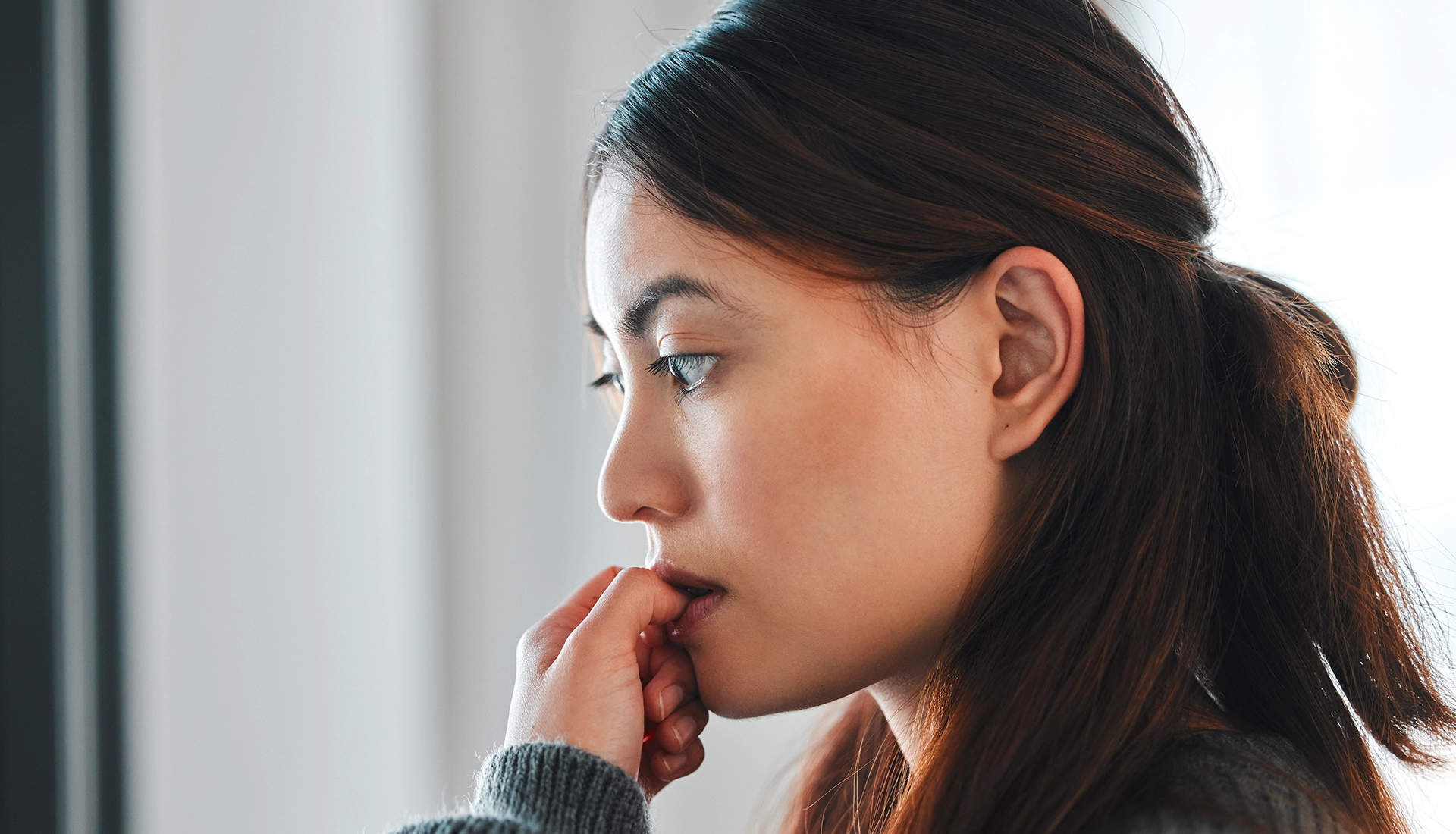How effective is therapy for anxiety? It has been shown to significantly reduce symptoms and improve daily life. This guide will dive into various therapies like CBT and what you can expect from them.
Key Takeaways
- Therapy serves as a collaborative process that aids individuals with anxiety disorders in developing healthier coping mechanisms and addressing root causes.
- Cognitive Behavioral Therapy (CBT) is highly effective for various anxiety disorders by modifying negative thought patterns and employing exposure techniques to confront fears.
- Finding a qualified mental health professional is essential for effective treatment, and therapy can significantly improve daily functioning and emotional management for those with anxiety.
The Role of Therapy in Treating Anxiety Disorders
Therapy is a collaborative journey where the psychologist and the patient work together to tackle specific anxiety-related issues. This collaboration aids individuals with anxiety disorders in developing healthier coping mechanisms for managing overwhelming emotions. Psychological therapies and talk therapy go beyond symptom relief, delving into root causes of anxiety to help patients live in the present and develop effective coping skills.
One significant advantage of therapy is the availability of different formats to suit various needs. Group therapy, for instance, offers the benefit of support from others experiencing similar challenges, which can be incredibly reassuring. Family therapy is another valuable option, especially for children and adolescents, as it helps families understand and support their members struggling with anxiety. These talking therapies create an environment where patients do not feel isolated in their struggles.
Gaining insight into one’s past through therapy can also play a pivotal role in resolving anxiety and reducing vulnerability to future episodes. Patients are encouraged to practice new skills learned in therapy outside of sessions to better manage anxiety-inducing situations in real life and to remain focused on the present moment. Practicing new skills outside of sessions is vital for long-term recovery and can trigger anxiety provoking thoughts and recurrence.
At institutions like Back Bay Mental Health, a combination of therapy and medication management helps individuals struggling with mental health issues find a balanced and effective treatment plan for treating mental health conditions, including psychological and pharmacological interventions.
Cognitive Behavioral Therapy (CBT) for Anxiety
Cognitive Behavioral Therapy (CBT) stands out as one of the most effective methods for treating various anxiety disorders. It is recognized as a key intervention for addressing anxiety by modifying unfavorable thoughts and actions. The core idea behind cognitive behaviour therapy is to challenge and reframe anxious thinking patterns, thereby altering responses to anxiety-inducing situations.
CBT aims to change maladaptive emotional responses, thoughts, and behaviors associated with anxiety disorders. This is achieved through a combination of cognitive restructuring and exposure methods, where patients learn to rethink life situations and perceive dangers more realistically. Exposure methods are typically considered the first line of treatment for many anxiety disorders, providing a structured way to face stressors incrementally.
The effectiveness of CBT is well-documented, with it being the go-to treatment for conditions like:
- PTSD
- GAD
- OCD
- Panic disorder
- Specific phobias
- Social anxiety disorder
CBT teaches stress management and anxiety reduction, paving the way for a more balanced life.
Exposure Therapy Techniques in CBT
Exposure therapy is a critical component of CBT, involving different techniques to help patients confront and reduce their fear. These techniques include exposure therapies, imaginal exposure: involves vividly visualizing frightening situations to reduce anxiety without physical avoidance, in vivo exposure, and interoceptive exposure. Exposure therapy helps patients manage their fears effectively.
In vivo exposure, on the other hand, involves real-life confrontation of feared situations, while interoceptive exposure aims to reduce fear of bodily sensations associated with anxiety by intentionally inducing them. These methods help patients gradually face their fears, thereby diminishing their anxiety over time.
Effectiveness of Therapy for Specific Anxiety Disorders
Different anxiety disorders tend to require tailored therapeutic approaches to anxiety treatment. Cognitive Behavioral Therapy (CBT) is especially effective across a range of anxiety disorders, including:
- PTSD
- GAD
- OCD
- Panic disorder
- Specific phobias
- Social anxiety disorder.
The following subsections detail how therapy addresses each condition.
Generalized Anxiety Disorder
Generalized Anxiety Disorder (GAD) is characterized by excessive anxiety and uncontrollable worry about various aspects of life, significantly affecting daily functioning and leading to anxious feelings. Patients with GAD benefit from a combination of cognitive and behavioral techniques to address this severe anxiety and excessive worry.
Cognitive Behavioral Therapy (CBT) is particularly effective in treating GAD as it focuses on identifying and changing negative thinking patterns that contribute to excessive worry. Mindfulness based cognitive therapy helps individuals manage anxiety symptoms more effectively, enhancing their overall quality of life.
Panic Disorder
Panic disorder is marked by recurrent panic attacks and the persistent fear of having more panic attack. Common interventions in CBT for panic disorder include exposure therapy and cognitive restructuring. Cognitive restructuring techniques help patients identify distorted thoughts contributing to panic symptoms, enabling them to manage their anxiety better.
Research indicates CBT outperforms no treatment or placebo in treating panic disorder. Adding cognitive components to exposure therapy enhances outcomes, especially with comorbid depressive symptoms.
Social Anxiety Disorder
Behavioral interventions focusing on exposure to social situations are crucial in reducing anxiety related to social interactions. Individual CBT has been shown to be effective for social anxiety and social phobia, significantly improving symptoms compared to a waitlist control.
Cognitive restructuring complements exposure therapy, aiding patients with social anxiety disorder in managing anxiety and engaging in social situations with greater confidence.
Obsessive-Compulsive Disorder
Obsessive-Compulsive Disorder (OCD) is often managed with exposure and response prevention (EX/RP) therapy, which is considered the preferred treatment for reducing OCD symptoms. EX/RP therapy involves exposing the patient to the feared imagined situation to decrease anxiety without allowing compulsive behaviors.
Behavioral experiments conducted in therapy challenge faulty appraisals in OCD patients, helping them recognize cognitive distortions that lead to compulsive behaviors. This structured approach, along with pharmacological interventions and psychological treatments, results in superior outcomes compared to placebo and waiting list controls.
Post-Traumatic Stress Disorder
Post-Traumatic Stress Disorder (PTSD) can be effectively treated with prolonged exposure therapy and cognitive processing therapy. Prolonged exposure therapy involves repeatedly visualizing a traumatic event and recounting it aloud to reduce PTSD symptoms.
Cognitive processing therapy helps patients reframe their traumatic experiences, reducing the symptoms associated with PTSD. These structured approaches, including cognitive therapy, are pivotal in alleviating PTSD symptoms, offering a framework to process traumatic experiences.

Complementary Therapies for Anxiety
Complementary therapies can serve as effective treatments adjuncts in treating anxiety disorders. Research suggests different therapeutic techniques, such as mindfulness techniques, may rival traditional treatments in alleviating anxiety symptoms, though more studies are needed to treat anxiety.
Relaxation techniques, such as progressive muscle relaxation, can be beneficial for managing anxiety, particularly during stressful medical procedures, by reducing muscle tension. Regular physical activity also plays a significant role in alleviating anxiety and should be incorporated into a healthy lifestyle.
Other complementary therapies include acupuncture, which may help alleviate anxiety symptoms, and Emotional Freedom Techniques (EFT), which have demonstrated a notable reduction in anxiety levels, although more research is needed to confirm these findings.
Finding the Right Mental Health Professional
Finding the right mental health professional is crucial in treating anxiety disorders. Considering the provider’s specialization is important for addressing specific anxiety concerns. Verifying licensing and credentials ensures they are qualified.
Insurance coverage can influence which mental health provider are accessible, so it’s important to verify your benefits. Trusted personal referrals can be valuable in finding a suitable mental health professional.
Benefits of Therapy for Anxiety
Therapy can significantly enhance a person’s ability to manage anxiety, leading to improved functioning in daily life. Patients often begin to notice improvements in their anxiety after just a few therapy sessions.
Therapy can reduce or eliminate anxiety symptoms within months, enhancing overall quality of life. Improvements in emotional management make therapy for anxiety disorders a highly beneficial treatment for those struggling with anxiety disorders.
Making Therapy Work for You
Making therapy work for you involves a commitment to the process and a willingness to face fears instead of avoiding them, which may lead to initial discomfort but is crucial for long-term recovery.
Group therapy can provide support groups and effective treatment for individuals with anxiety disorders, offering a sense of community and shared experiences.
Additionally, integrating complementary therapies into your treatment plan can enhance the overall effectiveness of therapy, helping you achieve emotional balance and manage anxiety more effectively.
Therapy offers a powerful tool for managing anxiety disorders, with Cognitive Behavioral Therapy (CBT) standing out as a particularly effective method. Tailored approaches, including exposure therapy and complementary therapies, enhance the therapeutic process, providing a comprehensive treatment plan.
By finding the right mental health professional and committing to the therapeutic journey, individuals can significantly reduce their anxiety symptoms, improve their quality of life, and achieve emotional balance. Therapy holds the promise of transforming lives, offering hope and relief to those struggling with anxiety.
Frequently Asked Questions
How effective is CBT for treating anxiety disorders?
Cognitive Behavioral Therapy (CBT) is highly effective for treating anxiety disorders such as PTSD, GAD, OCD, panic disorder, specific phobias, and social anxiety disorder. Its structured approach addresses negative thoughts and behaviors, leading to significant improvements in anxiety management.
What are complementary therapies for anxiety, and how do they help?
Complementary therapies like mindfulness, relaxation techniques, physical activity, acupuncture, and Emotional Freedom Techniques (EFT) can significantly improve anxiety management when used alongside traditional treatments. These methods help by promoting relaxation, enhancing emotional regulation, and reducing stress levels.
What should I consider when choosing a mental health professional?
It is essential to consider the professional’s specialization, credentials, insurance coverage, and personal referrals when selecting a mental health provider to ensure a suitable match for your needs. Making informed choices will enhance your mental health journey.
How can therapy improve my quality of life if I have an anxiety disorder?
Therapy can significantly enhance your ability to manage anxiety, resulting in improved daily functioning and a reduction of symptoms. This ultimately contributes to an overall better quality of life.
What are the key elements of making therapy work for me?
To make therapy work for you, commit to the process and confront your fears. Additionally, consider participating in group therapy and integrating complementary therapies to enhance your treatment’s effectiveness.




